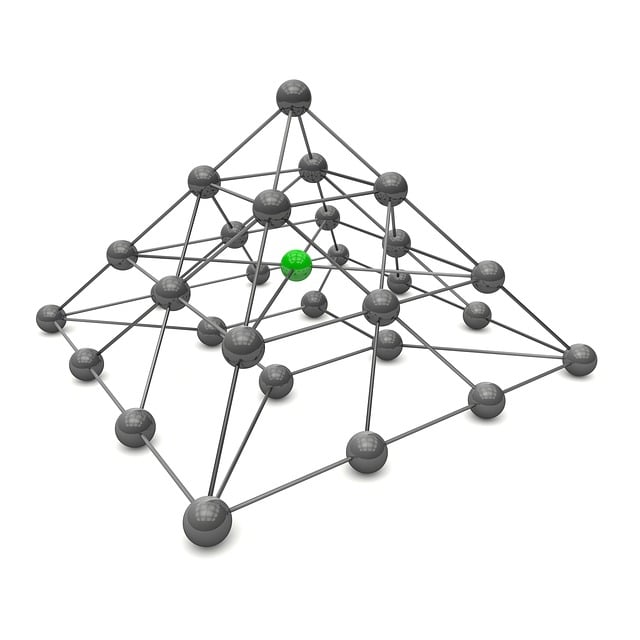The FAQPage schema using FAQ JSON-LD Code is a powerful tool for web developers and content creators to boost website visibility and user experience. It helps search engines understand FAQs, displaying them richily in results, enhancing engagement. Integrating the code involves structuring data, testing, validating, and monitoring SEO performance. Best practices include clear questions, seamless integration, balance answer length, and use visual cues. Success is measured via analytics tools, focusing on CTRs, session duration, bounce rates, and SERP performance changes. Regular analysis ensures optimal positioning, and the FAQ JSON-LD Code strengthens online presence for various businesses.
Adding the FAQPage schema to your website’s content is a strategic move to boost user engagement and claim valuable real estate in search engine results pages (SERPs). By implementing this schema, you unlock rich, interactive FAQ displays, providing immediate answers to user queries. This article guides you through the process, from understanding the FAQPage schema’s benefits to optimizing content and measuring success with key performance indicators. Learn from real-world examples and discover why adding FAQ JSON-LD code is essential for modern websites.
- Understanding FAQPage Schema and Its Benefits
- Why Add FAQ JSON-LD Code to Your Website?
- Implementing the FAQPage Schema: A Step-by-Step Guide
- Best Practices for Optimizing FAQ Content
- Measuring Success: Tracking User Engagement and SERP Performance
- Real-World Examples of FAQPage Schema in Action
Understanding FAQPage Schema and Its Benefits

The FAQPage schema is a powerful tool for web developers and content creators looking to enhance their website’s visibility and user experience. It is a structured data format, typically implemented using JSON-LD code, that provides search engines with clear insights into your site’s frequently asked questions (FAQs). By adopting this schema, you’re essentially offering search engines a structured FAQ section on your page, making it easier for them to understand and present relevant information in rich FAQ results.
One of the key benefits lies in its ability to improve user engagement by providing quick answers to common queries directly within the search results. This not only saves users time but also encourages them to interact with your content further, leading to higher click-through rates and reduced bounce times. Accordion Schema SEO and FAQ Snippet Optimization techniques can be leveraged alongside this schema to showcase snippets of answers in SERPs, making your page stand out among competitors. The FAQPage Type schema is a game-changer for businesses aiming to provide valuable information while optimizing their search engine real estate.
Why Add FAQ JSON-LD Code to Your Website?

Adding the FAQ JSON-LD Code to your website is a strategic move that enhances both user experience and search engine optimization (SEO). In today’s digital landscape, where users expect instant answers, incorporating structured data through the FAQ JSON-LD schema can significantly boost your site’s visibility in rich FAQ results. This format allows search engines to understand and display frequently asked questions and their respective answers directly on the search results page, capturing users’ attention and reducing bounce rates.
The FAQ JSON-LD Code offers a structured way to present content, making it easier for search engine crawlers to parse and index your data. By implementing this schema, you’re essentially providing a clear roadmap of your site’s most valuable information, encouraging search engines to prioritize display of these questions in relevant searches. Moreover, the accordion-like structure of FAQPage Type can improve user engagement by allowing visitors to interactively explore answers, fostering a more dynamic and immersive experience on your website.
Implementing the FAQPage Schema: A Step-by-Step Guide

Implementing the FAQPage Schema is a strategic move to enhance your website’s search engine optimization (SEO) and user experience. This schema, represented by the FAQ JSON-LD Code, tells search engines that your content includes frequently asked questions and their answers, making it eligible for rich FAQ results. By structuring your data using this schema type, you provide search engines with valuable insights into your content’s topic and organization.
Here’s a step-by-step guide to get you started:
1. Identify FAQs: Compile a list of common questions that your target audience might have about the specific topic or product on your site.
2. Structure Your Data: Organize these FAQs into logical groups, each with a question and answer pair. This is where the FAQ JSON-LD Code comes in—it formats this data in a way search engines understand.
3. Implement the Schema: Integrate the code snippet into your web page’s HTML, typically within the “ section. Ensure that each FAQ group is correctly delimited for clarity.
4. Test and Validate: Use Google’s Structured Data Testing Tool to verify that your schema implementation is accurate. This tool checks if your data conforms to the Schema.org specifications.
5. Publish and Monitor: Once validated, publish your changes, and keep an eye on how rich FAQ results appear in search engine result pages (SERPs), enhancing both user engagement and your site’s visibility.
Best Practices for Optimizing FAQ Content

To optimize your FAQ content for rich FAQ results and enhance user engagement, follow these best practices. First, ensure each question is clear, concise, and answers a specific user query. The FAQ JSON-LD code should be integrated seamlessly into your webpage, providing structured data that search engines can easily parse. Use the Schema FAQPage Type to define the page’s purpose and improve SEO credibility.
Each answer should be thorough yet succinct, aiming for a balance that satisfies users’ information needs while keeping them on the page. FAQ Snippet Optimization plays a crucial role here—crafting compelling snippets with relevant keywords can significantly boost click-through rates from search results. Visual cues, like bullet points and headings, also aid readability and make your FAQs more engaging.
Measuring Success: Tracking User Engagement and SERP Performance

Measuring success is a crucial step after implementing the FAQPage schema. By utilizing analytics tools, you can track user engagement to understand how visitors interact with your content. Monitor metrics such as click-through rates (CTRs) on FAQ items and the average session duration to gauge the effectiveness of your schema markup. Additionally, watch for improvements in bounce rate, indicating that users are finding relevant answers and staying engaged.
On the SEO front, keep an eye on SERP performance changes, especially with regard to featured snippet opportunities. The FAQ JSON-LD Code enhances your page’s chance of securing a rich FAQ result, which can significantly improve visibility. Regularly analyze search engine rankings for targeted keywords associated with your FAQs to ensure optimal positioning and consider using Accordion Schema SEO and Schema FAQPage Type for further optimization.
Real-World Examples of FAQPage Schema in Action

In real-world applications, implementing the FAQPage schema has demonstrably improved user experience and search engine rankings for various businesses and websites. For instance, consider a travel agency website utilizing this schema to present detailed questions about flight bookings, vacation packages, and travel insurance. With the FAQPage schema, users can swiftly access answers to their queries without scrolling through lengthy pages, enhancing navigation and customer satisfaction.
This schema’s impact is further highlighted by its ability to optimize search snippets through FAQ Snippet Optimization. When a search engine crawls a page with this structured data, it can extract key questions and corresponding answers, providing users with concise, informative snippets in the Search Engine Results Page (SERP). This strategy not only boosts visibility but also encourages clicks, as users are more likely to engage with content that offers immediate value. The FAQ JSON-LD Code plays a pivotal role in this process, ensuring search engines can interpret and display the data accurately. By integrating this code seamlessly into web pages, website owners can effectively communicate their content’s structure and facilitate better engagement, ultimately solidifying their online presence.
